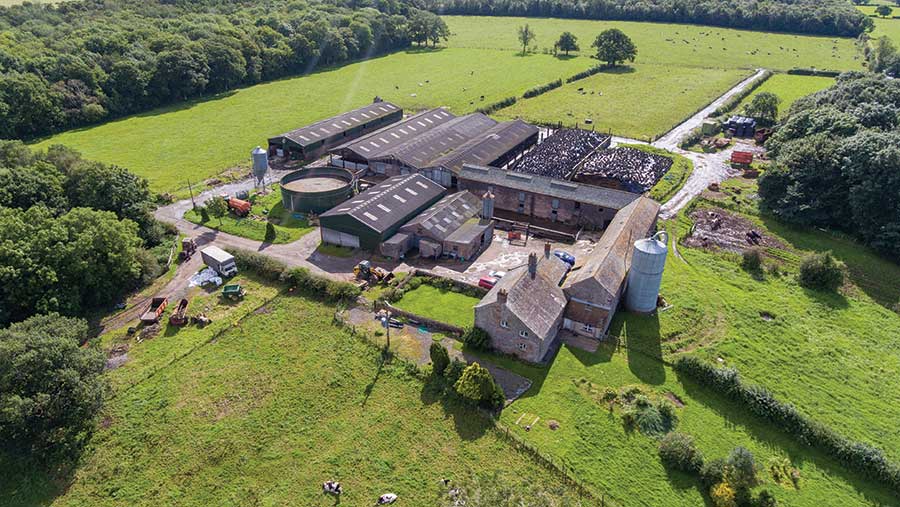Long-term farm tenancies decline amid political uncertainty
 Middlesceugh Hall Farm © Edwin-Thompson
Middlesceugh Hall Farm © Edwin-Thompson Farmers are struggling to find long-term tenancies that provide greater security for their businesses as landlords continue to shrink agreement lengths.
Landowners are being advised against entering agreements for longer than a few years due to political uncertainty, according to the Tenant Farmers Association (TFA).
The tenanted sector of agriculture makes up about one-third of the agricultural area of England and Wales, and around half that is rented under farm business tenancies (FBTs), governed by the Agricultural Tenancies Act 1995.
See also: Are progression units the future of council farm estates?
Since the introduction of the 1995 Act, average lengths of term have been around the four-year mark, but new evidence suggests term lengths are getting even shorter, according to the TFA.
Farming is a long-term endeavour, requiring significant capital investment, patience, good soil management and the ability to balance profitable years against the bad, argues the association.
Longer-term agreements help farmers build their confidence and their business, and provide tenant, landlord and bank with greater security.
However, 85% of all new FBTs are let for five years or less, says the TFA, and the trend is damaging the let sector of agriculture, especially in the current period of uncertainty.
George Dunn, TFA chief executive, said: “The lack of an obvious route through Brexit and the strong possibility of an imminent general election are clearly unsettling.
“That uncertainty is being compounded by professional advisers urging their landlord clients not to enter into long-term tenancy agreements.
“Farming has always needed a long-term view, and short-term tenancy agreements are ruining the ability for farm businesses to plan ahead.”
Policy speculation
Part of the problem is the lack of clarity about new government policy for agriculture and the rural environment.
Landlord advisers are speculating about whether their clients may be able to capitalise on future schemes, such as environmental land management contracts and planting grants for forestry, says Mr Dunn.
“It would seem more appropriate for those advising landlords to be helping them find good tenants with whom to do long-term deals at sensible levels of rent,” he said.
The TFA is also calling for the government to step in to encourage longer tenancies and in particular to remove taxation benefits to those who continue to let on a short-term basis.
A Defra spokesman said: “We recognise the importance of providing tenant farmers with the security they need to invest in their business and deliver environmental improvements, while also ensuring land owners can agree tenancy agreements that suit their individual needs.
“That’s why we recently consulted on ways to improve the competitiveness and sustainability of the tenant farming sector and we will continue to engage with industry on how best to achieve this.”
What’s on the tenancy market?
Despite the general trend of short-term tenancies seeming set to continue, a number of 10- to 15-year FBTs have been snapped up in recent weeks, including livestock and dairy farms from Snowdonia to Cornwall.
Here’s what else is on offer:
Cumbria
Middlesceugh Hall Farm in Carlisle (pictured above) is available on a 15-year farm business tenancy from 1 March 2020 with Edwin Thompson.
The dairy farm includes 225 acres, a five-bedroom house and a range of modern and traditional buildings.
The tender closing date is 12 noon on 4 December 2019.
Herefordshire
Knight Frank is marketing a mixed use holding on Bosbury Estate, Ledbury, to be let by informal tender on a 10-year farm business tenancy from January 2020.
It includes 280 acres of grade 2 and 3 land, a range of buildings, and a house is available if required.
Expressions of interest are due by 12 noon on 22 November 2019.
Derbyshire
In Eckington, Sheffield, 109 acres of grade 3 arable and grassland is on offer as a whole or in three lots on an initial three-year term.
Offers must be sent to Fisher German by 12 noon on 8 November 2019.
